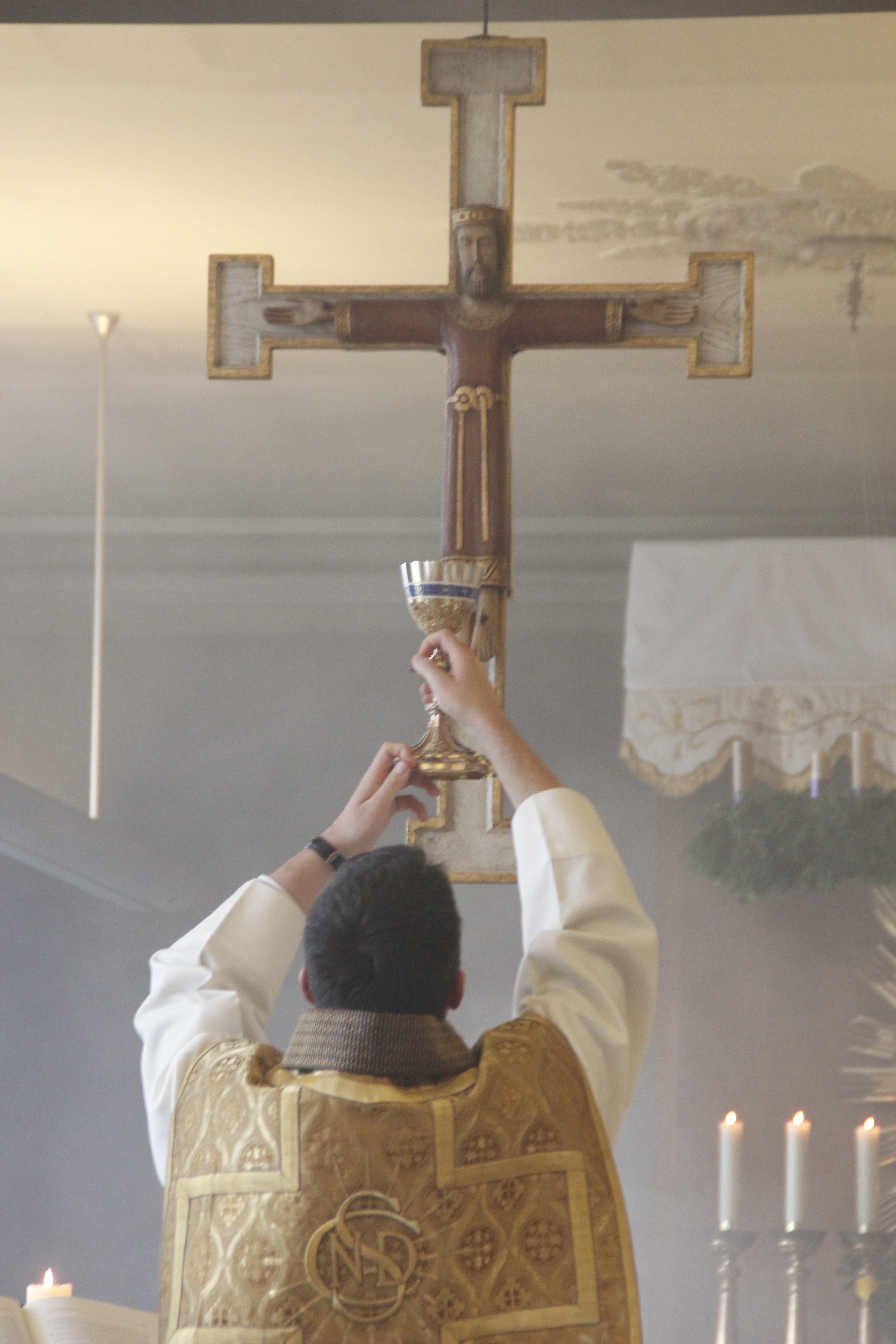What is the Liturgy?
“Worthy is the Lamb that was slain to receive power and riches, wisdom and strength, honor and glory and blessing.” (Rev 5, 12)
The Christian Liturgy is the worship given by the baptized to the Father, through the Son, in the Holy Spirit. By participating in it, the Christian must enter with all his humanity into the gift of the Son to the Father. He then bears his Christian name well, since he himself becomes Christ (ipse Christus) by offering himself on the paten and in the chalice.
In this immense gift made present by the liturgy, we have to avoid two excesses sadly unfortunately too present in the hearts of Christians.
The first excess would be an exclusively horizontal view (let us say too human) of the liturgy. In this way, it wouldn’t be anything but a terrestrial worship reduced to an execution of gestures laden with more or less meaning.
The second excess would be an exclusively vertical vision. This vision of the liturgy, let us not deceive ourselves, is just as dangerous as the first. The liturgy is then reduced to a cult in spirit; only what happens in the heart of man is essential … one can thus do what one wants since God only speaks personally to each one.
Faced with these two excesses, we must connect the horizontal to the vertical. It is therefore the cross that we have before our eyes, for indeed, the key to the liturgy is Christ, true God and true man. By assuming these two realities, Christ, the Word made flesh, has wanted to bring the divine into the human so that, through this mystery of grace, the human may access the divine. Let us therefore depart from a Platonic vision of the faith which would reject the divine in heaven and the carnal on earth! When we enter a church, and especially during the celebration of the Mass, these two mysteries are united; this is why the Word wanted to become flesh.
Thus, liturgy is the a-temporal bond that makes us present to the unique and eternal mystery of God. By rendering this worship to the true God, we are already in the presence of the throne of the Lamb. That is why our earthly liturgies must reflect heaven and not the earth!
But be careful, this being said, we must not forget to unite our liturgy to the real life. The beauty of our worship must reflect the beauty of our deeds. The beggar who finds himself at the door of our parish church, at the exit of our supermarket or at my work, must be part of our liturgies. We must carry them, offer them up to God and help them in the most concrete things of our existence. It is in this sense that the Lord declares: What do I care for the multitude of your sacrifices? Stop bringing vain offerings; I hate your incense. Wash, purify yourself, take away from your sight your evil deeds, cease to do evil. Learn to do good: seek the right, put the oppressor to the pitch, do justice to the orphan, defend the cause of the widow. (Is 1).
To render a liturgical worship doesn’t mean to leave the reality but to offer up the reality!



